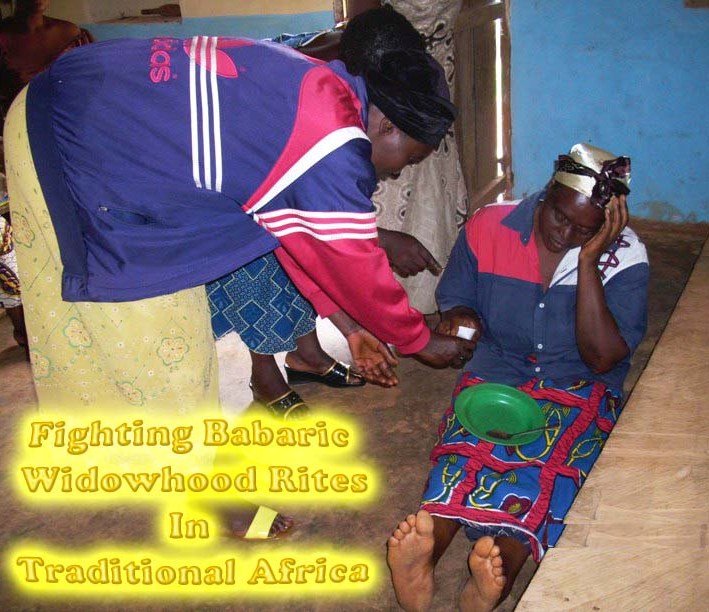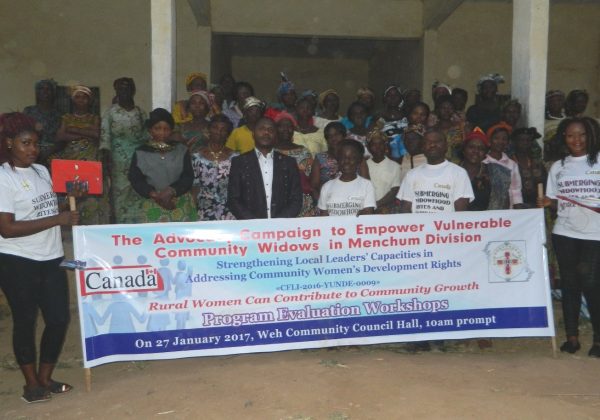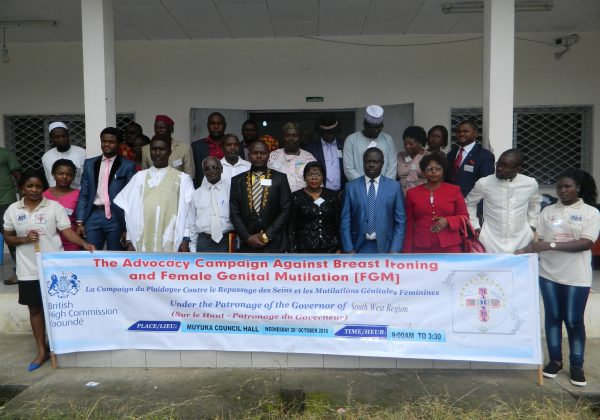… (Achieved article)
MAHSRA is in partnership with the Muslim Students Association Bamenda [MUSAB], launching a series of activities across local communities that will assist in fighting for the rights of vulnerable community widows.
In focus, the projects aims at fighting the barbaric widowhood rites practices within indigenous grassroots communities in order to help eliminate the abusive treatment inflicted widows based on some inhumane customary traditions.
As a goal, ‘Fighting the Barbaric Widowhood Rites within Indigenous Africa’ is a strategized grassroots community-based activity schema that sorts to transform the human rights abusive treatments inflicted on women (widows) based on customary obligations (rites), to internationally respected standards of the woman’s rights.This Implies readdressing the customary rites on widows in respect of the widows’ rights that is parallel with women’s rights.
In effect, the major worry that this initiative seeks to redress is the assessed ill and abusive treatment phased by widows in some indigenous communities in Cameroon. As of the moment, after the last year’s (2013) exemplary activities within the indigenous communities of Babessi, Mbatu and Nkar in Ngoketungia, Mezam and Menchum divisions respectively, further evaluation results done by the organizational field teams within other alleged communities (Kai, Ndu and Weih in Ndonga-mantung, Momo and Menchum divisions respectively) proved the following chronic and barbaric widowhood rites practices:
- The widow is stopped from participating in any external activities out of her home and bound to put on single dress through periods of 6 and 24 months;
- The widow’s eyelids are rubbed with ash, hair shaved, fibres tied around the head and on the joints, and she is restricted from buying and selling in the markets for a considerable timeframe;
- The widow is treated as a societal outcast by making her dress half-naked, use a bamboo as a walking stick, and use only a single plate, cup and spoon for feeding over long periods;
- The widow is restricted from sharing food or drinks with people who are not widows and worse more, after the 1 or 2years long bondage mourning period, only the family of the husband may set her free. Most often the husband’s family is reluctant to do so;
- The widow is compelled to marry the late husband’s brother and be inherited as part of his property. If she denies, every property is seized and she is left alone to fend for her children within her bondage mourning period restrictions and more
The Activities include:
- Organize 3 major widowhood rites village parades and cultural fairs with artistic displays against the inhumane widowhood maltreatment practices;
- The organization of over 30advocacy meetings with the customary custodians and the village Fons to restructure and amend their barbaric and inhumane widowhood traditional rites;
- Organize 3 major legal mass-marriage procedures for the traditionally married only couples and concubines and promote the obtaining processes of marriage certificates within the target communities;
- Provide material, technical and moral support for over 300victimized or disinherited widows with children to cater for;
- Establish and empower at least 6 community ombudswomen groups to supervise and assess the progress of the widowhood rites to rights initiative within their communities.
As outcomes, it is expected to bring about the following changes:
- Improved status on the cultural regards standards of women and their children with the traditional societies;
- Improved mentality mind-frames of the traditional men towards their community widows;
- Improved motherhood childcare support prerequisites within local communities;
- Increased awareness on the legal implications for depriving ignorant widows and their children (orphans) of their due development needs;
- Empowered local community women on their independent and personal life-style development
A majority of the funding of this project is has been launched online HERE
Updates will be posted at a later date
Note: since this project is a serial activity framework that moves from one community to another, major funding partners are highly solicited to cover many more victimised widows and communities across hundreds of localities within the country and beyond.
The vision of this endeavor is uprooted within the CEO‘s global development paradigms to foster peace and solidarity. Thus, while we have chosen to continue the initiative’s development activities within our immediate societal environments, we hope to attract the interest of major funding bodies that would make this vision a reality at national, international and global levels. Interested partners are strongly encouraged to use our contact page information.



